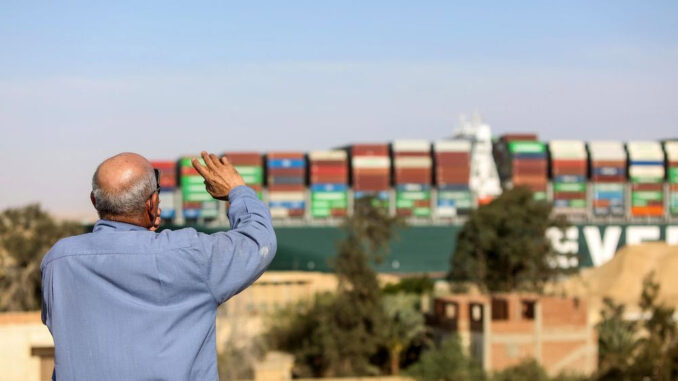
Extreme weather in China is becoming the latest challenge to global supply chains, as a heavy typhoon season threatens to further delay goods stuck at some of the world’s busiest container ports.
Yantian port in southern China’s export and industrial hub of Shenzhen temporarily stopped drop-off services of containers on Tuesday night due to a typhoon alert. Just two weeks earlier, Shanghai’s Yangshan mega-terminal facility and nearby ports evacuated ships as Typhoon In-Fa slammed into the coast, bringing widespread flooding and toppling containers stowed in the hold of a bulk carrier traveling to the U.S.
Supply chains have faced a string of bad luck this year. A Covid-19 outbreak among port staff was to blame for a partial closing of Yantian in May, leading to container goods piling up for a month. As ships diverted away from southern China, some factories in the nearby manufacturing hub of Guangdong shut down because of excess inventory that couldn’t be exported, according to analysts and logistics intelligence firm project44.
“The impact of Yantian’s closure was unprecedented on the supply chain because it serves one of the world’s largest manufacturing bases,” said Salmon Aidan Lee, head of polyesters at consultant Wood Mackenzie Ltd. “If we have a few more typhoons that come our way, and knock down production a few days each time, this problem will get worse.”
While the average waiting time for a container to be exported at Yantian has dropped to five days from 25 in June, and operations resumed at the port Wednesday evening, the situation could easily worsen again if weather-related delays at other Chinese ports build up, said Hersham.
Typhoon In-Fa also impacted factory operations in eastern China, while major ports along the Yangtze River, the country’s busiest inland waterway, halted operations last week, the Shanghai Shipping Exchange said in a July 30 note. Torrential rains and flooding have affected flows of commodities like oil and coal, the company said.
The disruptions are driving the cost of shipping a 40-foot box from China to the U.S. to record levels above $10,000, according to maritime consultant Drewry. Ultimately, the snarls will add to inflation, said Lee, who predicts U.S. consumers will have to pay about 20% more for Christmas presents — from toys to furniture.
— With assistance by Qian Chen, and Amanda Wang
